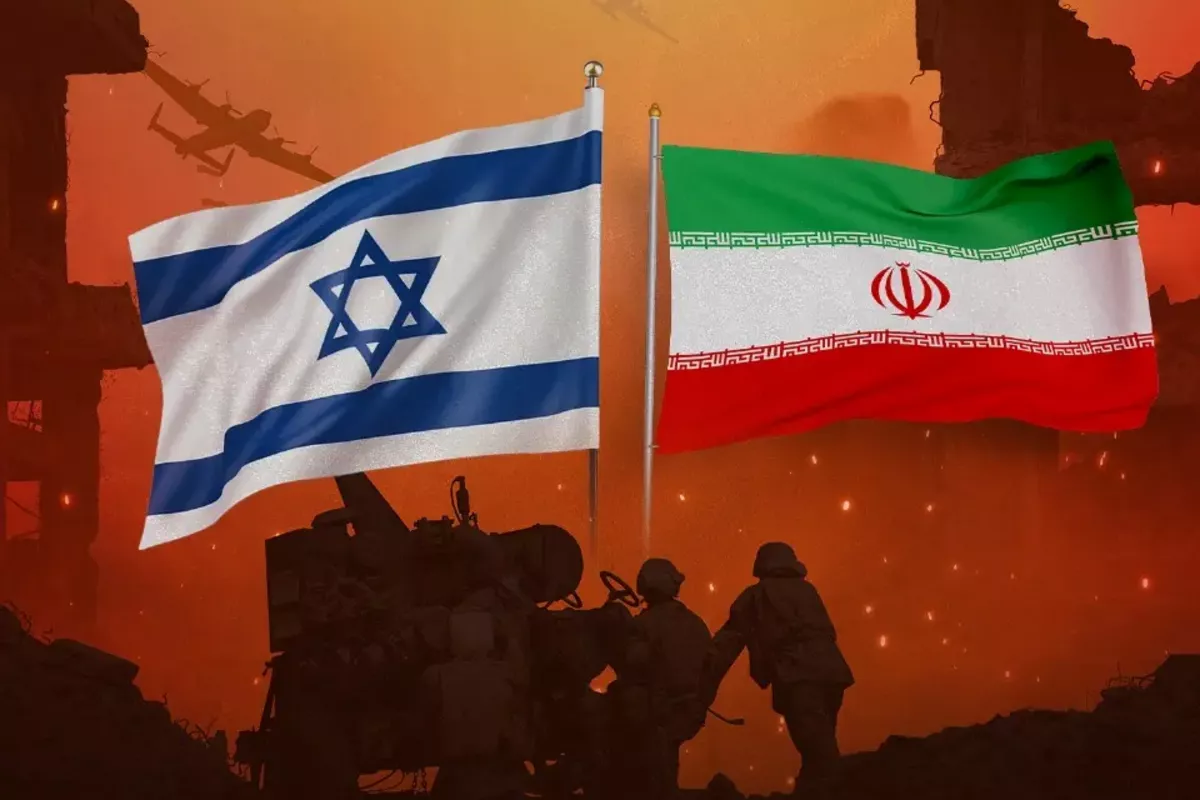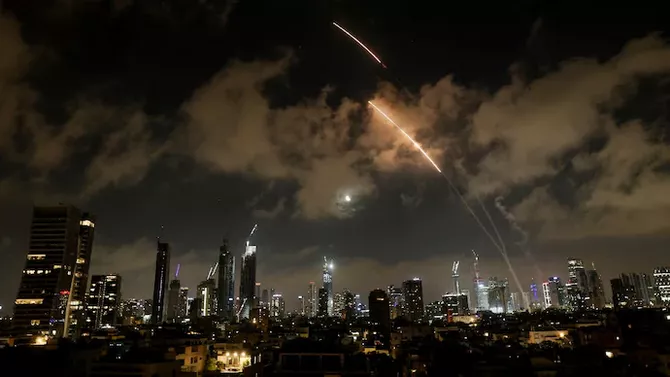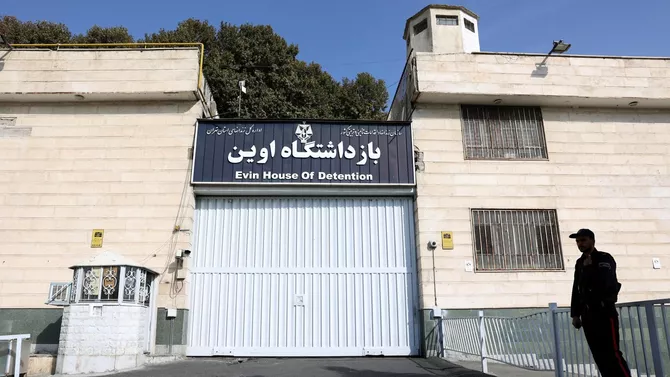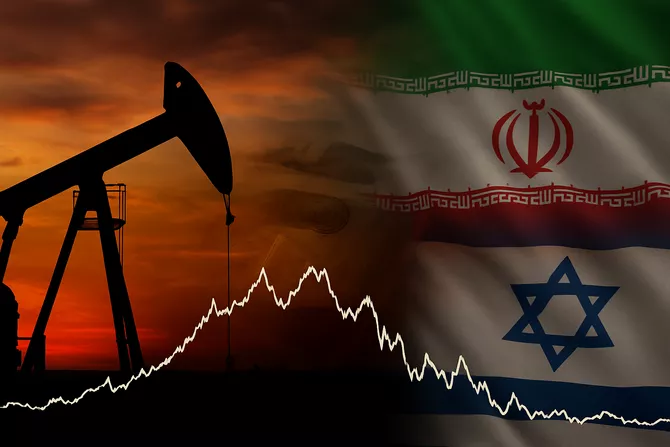
Photo credit: english.alarabiya.net
By any measure, the recent twelve-day conflict between Israel and Iran was highly unusual - a war unlike any in recent memory. In Iran, it has been elevated to the status of a historic confrontation: officials there claim it marked the Islamic Republic’s first direct clash with the “Zionist entity,” and one in which they supposedly inflicted enormous damage. But this narrative, embraced by Tehran’s media, does not hold up to scrutiny.
Yes, some Iranian strikes did hit the oil refinery in Haifa and damaged several other minor targets. But many missiles struck residential areas, killing civilians - including in Be’er Sheva. These are the true victims of the war, and their deaths underscore the tragedy of this escalation. Yet Iran failed to achieve any meaningful strategic objectives.
If one were to believe Iranian media, the war was filled with spectacular triumphs: reports claimed that Iranian Aerospace Forces shot down eight F-35s and destroyed other Israeli and American aircraft. These fantasies were widely disseminated - and just as widely discredited.
Still, Iran’s leadership sees profound significance in the conflict. They even coined a term for it - jang-e tahmili, or “Imposed War” - a phrase last used to describe the Iran-Iraq war of the 1980s. With this terminology, Tehran is attempting to elevate the twelve-day conflict to the level of national myth. Fortunately for all involved, it did not last nearly as long.

Reuters
Demonstrations were held in Tehran to celebrate what officials called a “historic” moment. State media portrayed the war as proof of Iran’s resolve and power. The messaging was clear: Iran not only withstood the Israeli assault but emerged stronger and more united.
But the numbers tell a different story. According to official figures, Iran lost 666 personnel - referred to as “martyrs” - and over 5,300 were wounded. These are heavy losses for a nation that hasn’t engaged in a head-on war with a major adversary in years. And they cut deep.
Meanwhile, Israel achieved significant results. Its strikes targeted and eliminated senior Iranian military and political leaders, as well as key scientists and technocrats responsible for Iran’s nuclear and missile programs - programs that may have been nearing completion. Those plans are now indefinitely suspended.
Israel also went after symbolic targets: Evin Prison in Tehran, the infamous “countdown clock” predicting Israel’s destruction, and the regime’s main propaganda TV channel - all were hit. These were not just tactical victories, but blows to the image and psychology of the regime.

WANA via Reuters
Iran sought to prove to its people that it could defend national honor. But it is Israel that appears to have achieved more - degrading core elements of Iran’s nuclear and missile infrastructure within days. The full extent of the damage is not yet known, but the intensity of the operation leaves no doubt that Iran suffered serious losses - losses even acknowledged by Iranian authorities.
When the dust settles, the scale of this operation will become clearer. But what’s already evident is that Israel shed its longstanding hesitations. For years, Tel Aviv refrained from open conflict with Iran, wary of its potential to spiral out of control. This time, the fear barrier was broken - and decisively.
Equally surprising was what did not happen: the war did not trigger a regional conflagration. Iran stood alone. Not a single state came to its aid. That, arguably, is the most important lesson of all.
What must be acknowledged is Israel’s demonstration of years of preparation - finally put to use. Israeli aircraft operated with impunity over Iran. On the ground, life in Tehran appeared to continue in its usual rhythm - pro-regime demonstrations, daily routines - while in the sky, Israel’s air force dismantled the military-political leadership’s core assets.
It wasn’t just hard targets that were destroyed. So-called “soft targets” - including the Tehran oil refinery and key port facilities - were also hit. The damage was substantial. As the Israeli Prime Minister said in a national address, the 12-day campaign significantly weakened Iran’s nuclear capabilities and partially set back its missile programs. According to him, it could take Iran years to rebuild. Exactly how far it was pushed back remains unclear - but the strategic win for Israel is undeniable.
There’s a popular phrase in Israel: “Tnu le-Tzahal lenatzeach” - “Let the IDF win.” Often, Israel’s hands are tied by international partners. This time, it was the U.S. president who decided when to stop. After three key Iranian targets were destroyed with the help of U.S. intelligence, Washington insisted on a ceasefire.
Americans celebrated the de-escalation. Israelis were more restrained - but acknowledged the achievement: Israel had withstood the threat, disrupted dangerous programs, and shifted the strategic equation.
This war resonated far beyond the region. But one fact cannot be overlooked: no country sided with Iran. Only Russia offered vague moral support. According to media reports, President Putin privately told Iranian Foreign Minister Seyed Abbas Araghchi that Moscow “stood with Iran morally.” No military or political support was extended.
Tehran expected much more. It lost its naval presence and took heavy blows to its missile arsenal. While Iran retains considerable rocket capabilities, Israel is confident it will eventually neutralize this threat too.
Domestically, the war deepened rifts in Iran’s ruling elite. Polarization between hardliners and reformists is evident. President Masoud Pezeshkian, largely absent during the fighting, later offered conciliatory remarks, suggesting Tehran was open to talks. In contrast, Foreign Minister Araghchi stated there was “no plan for dialogue” - not with the U.S., nor anyone else. The contradictions reveal deep divisions, made worse by growing isolation.
Again, no country - and no proxy - truly came to Iran’s aid. Hezbollah responded with little more than rhetoric and a few rockets fired at Israel’s north. Syria stayed out. There were demonstrations, described as massive, but they had no real effect. Iran needed political and military backing - and it didn’t get it.

Illustrative picture. Generated by AI.
The oil market barely flinched. Iran threatened to close the Strait of Hormuz, but never followed through - likely because the consequences would have been disastrous, especially for itself. Oil prices fluctuated slightly, but the effect was not significant.
What may be most striking is how this campaign was received in the Arab world. Moderate Gulf states seemed to quietly welcome it. Israel’s success may energize the Abraham Accords. Seeing how effectively Israel dealt with the Iranian threat, Gulf countries may accelerate normalization. That, in itself, could be one of the defining consequences of this twelve-day war.
Share on social media